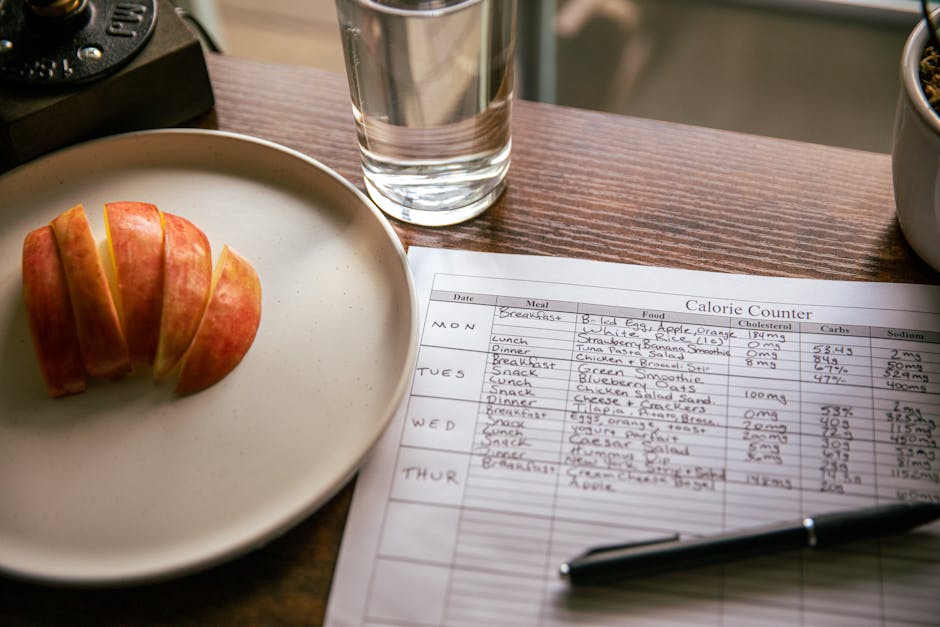Understanding the Importance of a Meal Plan
Understanding the Importance of a Meal Plan
Blog Article

Did you know that meal planning can significantly boost your chances of successful weight loss? A structured approach not only simplifies grocery shopping but also helps you maintain a balanced diet, which is crucial for shedding those extra pounds. One effective way to kickstart your weight loss journey is through a well-crafted 7-day weight loss meal plan. This article will delve into how such a plan can be beneficial and provide a sample menu to help you get started.
Understanding the Importance of a Meal Plan
Creating a meal plan can be a game changer for anyone aiming to lose weight. It provides structure and eliminates the guesswork of what to eat. With a defined plan, you're less likely to make impulsive food choices, which often lead to unhealthy eating habits. Here are some reasons why a meal plan is essential:
- Portion Control: Knowing what and how much to eat helps in managing portion sizes.
- Nutritional Balance: A well-rounded meal plan ensures you get the right nutrients.
- Time-Saving: Planning meals in advance saves time during busy weekdays.
- Cost-Effective: Buying ingredients based on a plan reduces food waste and saves money.
Components of a Successful 7-Day Weight Loss Meal Plan
To create an effective 7-day weight loss meal plan, it's crucial to incorporate a variety of food groups. This helps ensure you receive essential vitamins and minerals while keeping your meals interesting. Here are the key components to consider:
- Fruits and Vegetables: Aim for at least five servings daily. They are low in calories but high in fiber and nutrients.
- Lean Proteins: Include sources like chicken, turkey, fish, beans, and legumes to help maintain muscle mass.
- Whole Grains: Opt for brown rice, quinoa, and whole wheat bread for sustained energy.
- Healthy Fats: Incorporate nuts, seeds, avocados, and olive oil in moderation.
Sample 7-Day Meal Plan
Here is a sample menu for a week. Feel free to adjust portion sizes according to your individual caloric needs.
Day 1
- Breakfast: Oatmeal with sliced bananas and a sprinkle of cinnamon.
- Lunch: Grilled chicken salad with mixed greens, cherry tomatoes, and vinaigrette.
- Dinner: Baked salmon with quinoa and steamed broccoli.
- Snack: Greek yogurt with honey.
Day 2
- Breakfast: Smoothie with spinach, banana, and almond milk.
- Lunch: Quinoa bowl with black beans, corn, and diced avocado.
- Dinner: Stir-fried tofu with mixed vegetables and brown rice.
- Snack: Apple slices with almond butter.
Day 3
- Breakfast: Scrambled eggs with tomatoes and spinach.
- Lunch: Turkey wrap with lettuce, tomato, and hummus.
- Dinner: Grilled shrimp tacos with cabbage slaw.
- Snack: A handful of mixed nuts.
Days 4-7
Continue with similar meal patterns, incorporating different proteins, grains, and vegetables to keep your meals diverse and enjoyable. Remember, the goal is to create a sustainable eating habit that you can maintain beyond just one week.
Making the Most of Your Meal Plan
To maximize the effectiveness of your 7-day weight loss meal plan, keep these tips in mind:
- Prep in Advance: Spend some time each week prepping ingredients to make cooking easier.
- Stay Hydrated: Drink plenty of water throughout the day to support metabolism.
- Listen to Your Body: Adjust portion sizes and meal components based on your hunger levels and energy needs.
Conclusion
A well-structured 7-day weight loss meal plan can serve as a foundation for long-term weight management. By prioritizing nutritious foods and planning your meals, you set yourself up for success on your weight loss journey. Remember, consistency is key, and the healthier habits you form now will benefit you greatly in the future.
Report this page